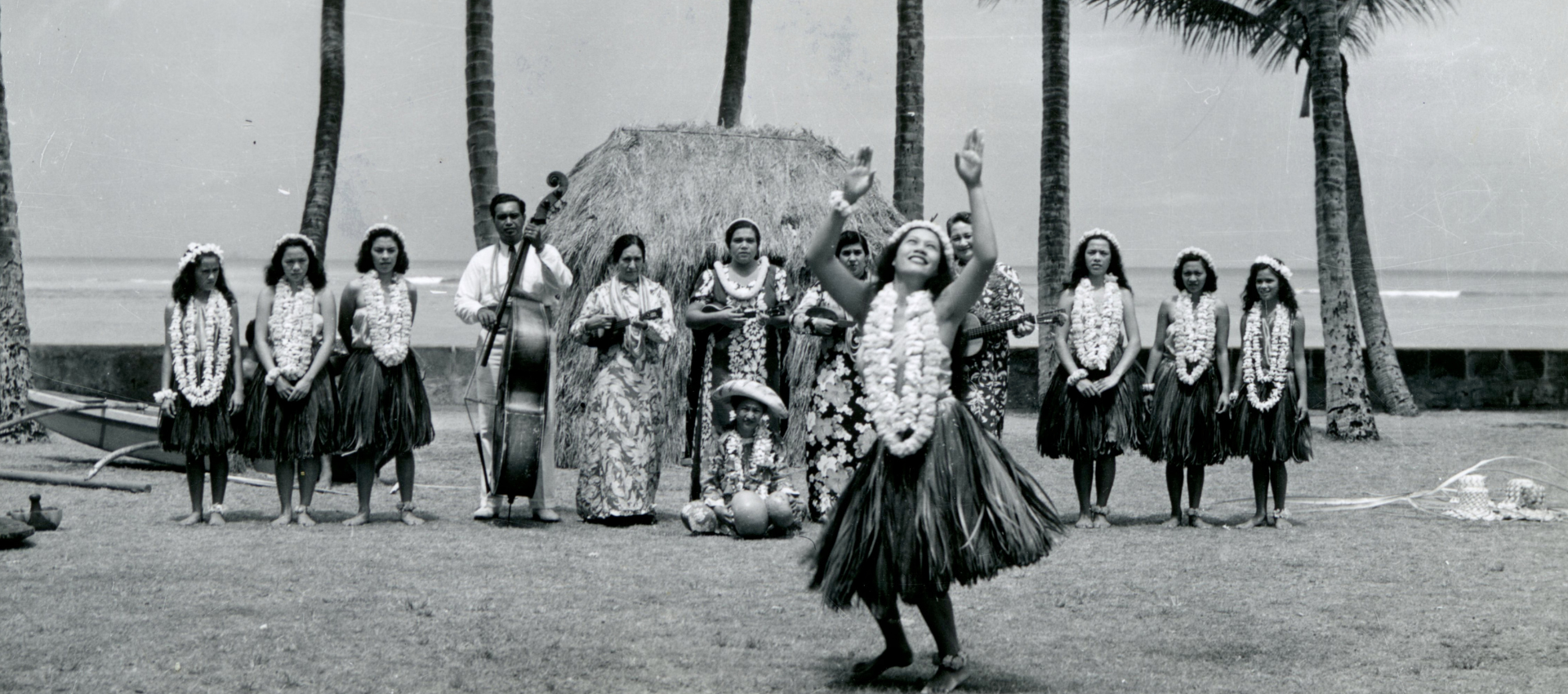Honoring Hawaiian and Pearl Harbor History at Liberty Luau
At Pearl Harbor Aviation Museum, we honor and recognize the importance of our history, not only of historic Ford Island and Pearl Harbor, but also of the Hawaiian culture and traditions. The Liberty Luau at Pearl Harbor honors the traditions of a Hawaiian luau and the history of Pearl Harbor with an unforgettable experience of food, culture, entertainment and performances, music, and a tour of our Museum that brings the attack on Pearl Harbor and the war in the Pacific to life.
Liberty Luau offers an exclusive tour of our World War II battlefield. Before you go, join us in learning, understanding, and honoring the Hawaiian history behind luau celebrations.
Kapu System
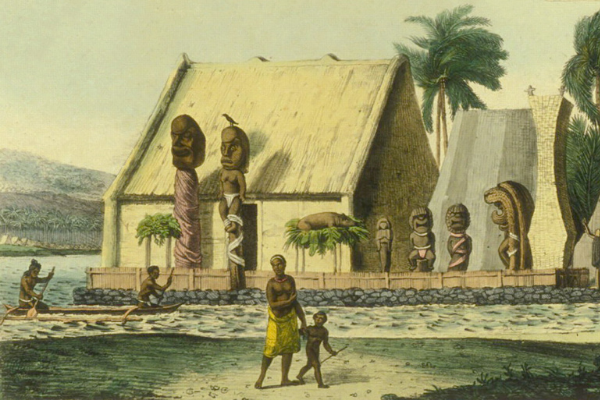 Kapu system placed restrictions and laws on forbidden practices.
Kapu system placed restrictions and laws on forbidden practices. 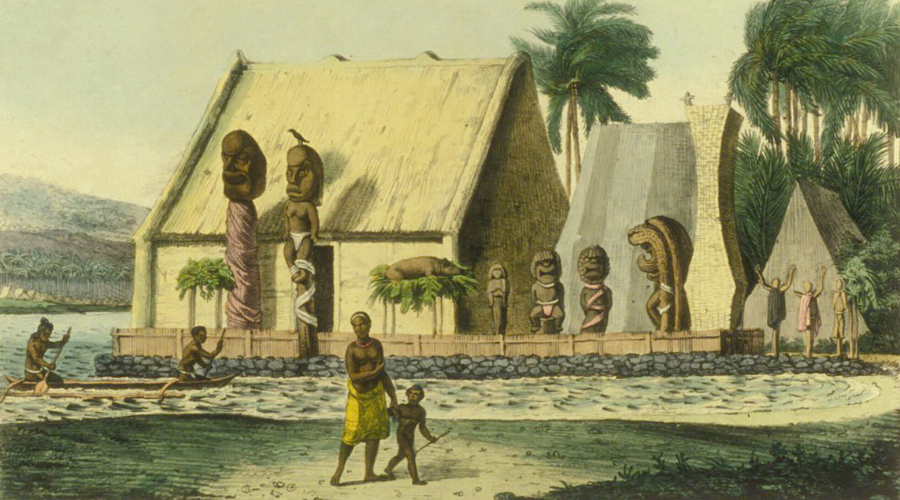 Kapu system rules placed restrictions and laws on forbidden practices.
Kapu system rules placed restrictions and laws on forbidden practices.
Before the early 19th century, religious restrictions and laws were in place put in place by the kapu system, which restricted certain actions in society. The word “kapu” translates to “forbidden” or “set aside as sacred.” Therefore, the kapu system was a system which governed what was forbidden. The system stated who could eat meals together and restricted the consumption of certain foods to men and chiefs only.
The laws forbade women of all classes from eating meals with males and from eating certain Hawaiian delicacies including reef fish, pork, and bananas. Only the chiefs, known as “alii” were permitted to partake in eating the foods which were considered sacred because they represented strength and other desirable attributes. These restrictions affected everyday practices as well as celebrations and feasts.
Aha’aina Celebrations
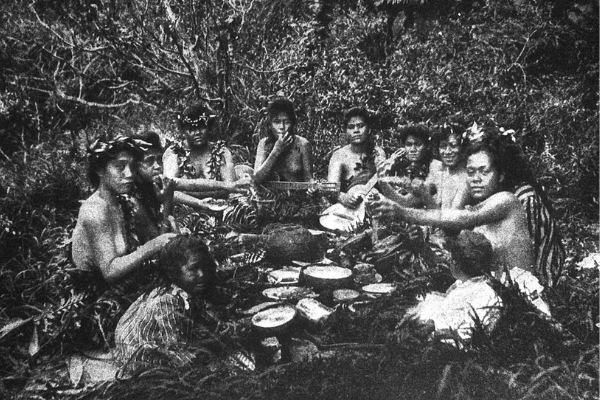 Aha’aina feast following kapu restrictions.
Aha’aina feast following kapu restrictions. 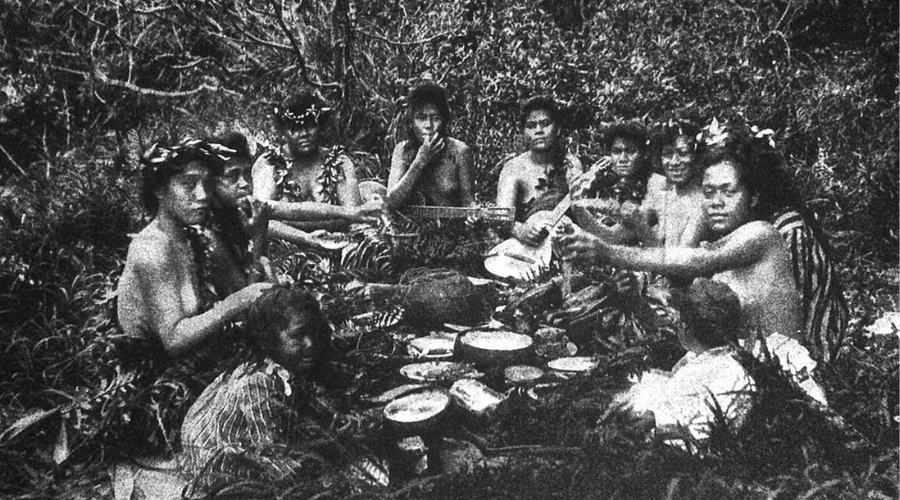 Aha’aina feast following kapu restrictions.
Aha’aina feast following kapu restrictions.
An ahaaina in ancient Hawaii was a gathering to eat a meal and celebrate together. These celebrations were mostly focused on traditions and ceremonies, and observed restrictions and laws which governed the activities and practices of the celebration. Traditionally, in Hawaiian culture, an ahaaina was used to celebrate very special occasions, such as honoring gods or celebrating a battle victory, a new life, a plentiful harvest, or another major life event. Ahaaina have been an important and significant part of Hawaiian and Polynesian culture throughout history.
A New Celebration for all
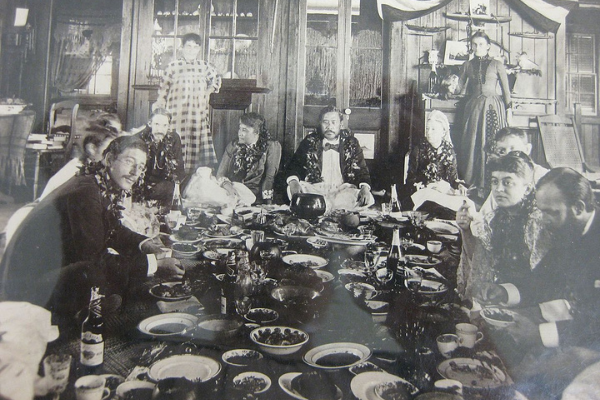 King Kalākaua and Royal Family hosting a Royal Luau in 1889.
King Kalākaua and Royal Family hosting a Royal Luau in 1889. 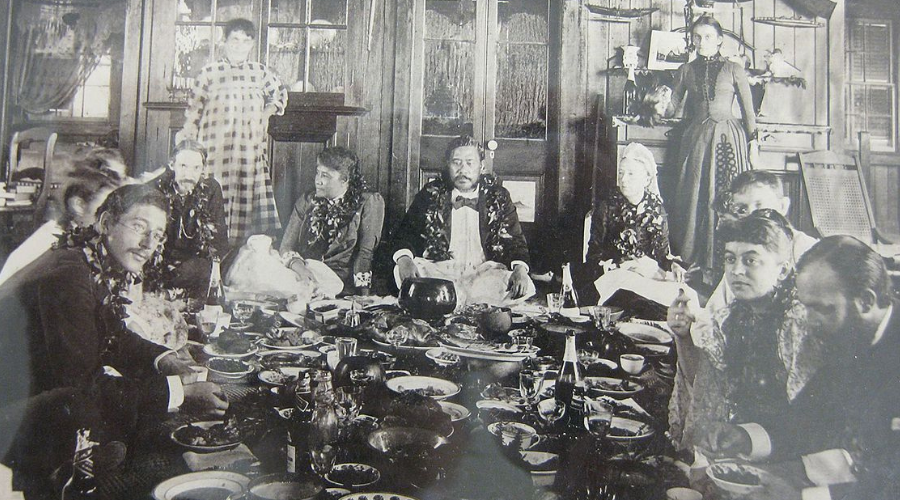 King Kalākaua and Royal Family hosting a Royal Luau in 1889.
King Kalākaua and Royal Family hosting a Royal Luau in 1889.
In 1819, King Kamehameha II ended the religious laws within the kapu system and therefore allowed men and women to eat together in all occasions and removed food restrictions so all could enjoy some of Hawaii’s most abundant delicacies.
To commemorate the end of the religious separation laws, King Kamehameha II threw a large ahaaina celebration for all men, women, and families to come together to eat, celebrate, and spend time together.
This gave way to a new type of feast and celebration where all could come together to honor and celebrate, whatever the victory may be.
Transition of The Word Luau
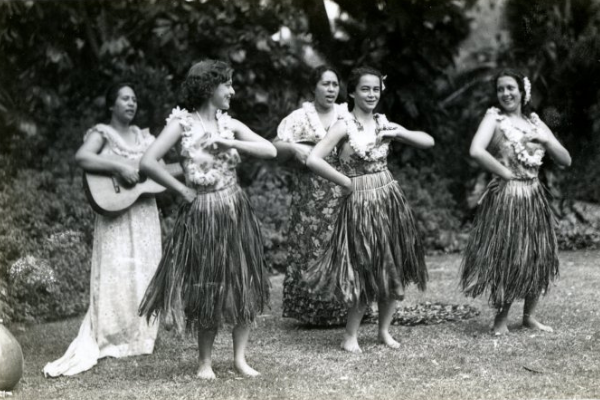 Luau celebration in the 1940s, full of food, dance, and music.
Luau celebration in the 1940s, full of food, dance, and music. 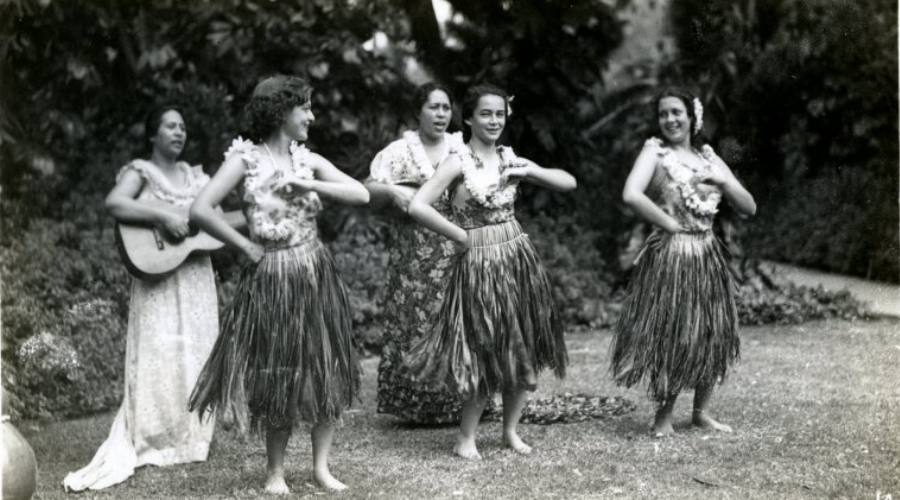 Luau celebration in the 1940s, full of food, dance, music, and celebrations.
Luau celebration in the 1940s, full of food, dance, music, and celebrations.
In the Hawaiian language, luau is spelled using both the okina and the kahako, making the Hawaiian spelling luau. Luau is pronounced “lou” as in Louis and “ow” as in what you say when you get hurt.
In the Hawaiian language, the word “luau” translates to “young taro tops.” This word was used in reference to a food dish, usually chicken or squid baked in coconut milk and taro. Luau is a traditional Hawaiian food which was served at an ahaaina, or feast.
Around the 1850s, the word luau came to represent the feast where the food – taro tops – was served. Over time, and influenced by advertisers, the word began to represent a gathering meal of food, music, and dancing. It is now used to represent a similar event as the traditional ahaaina feast in Hawaiian history with less focus on tradition and ceremony and more on celebration.
Modern Day Luau
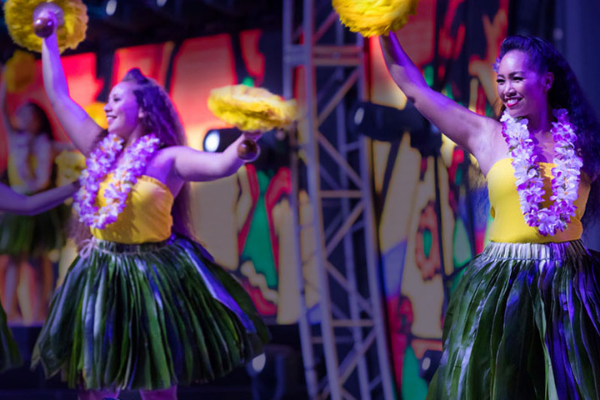 Hula Dancers at Pearl Harbor Aviation Museum Event.
Hula Dancers at Pearl Harbor Aviation Museum Event. 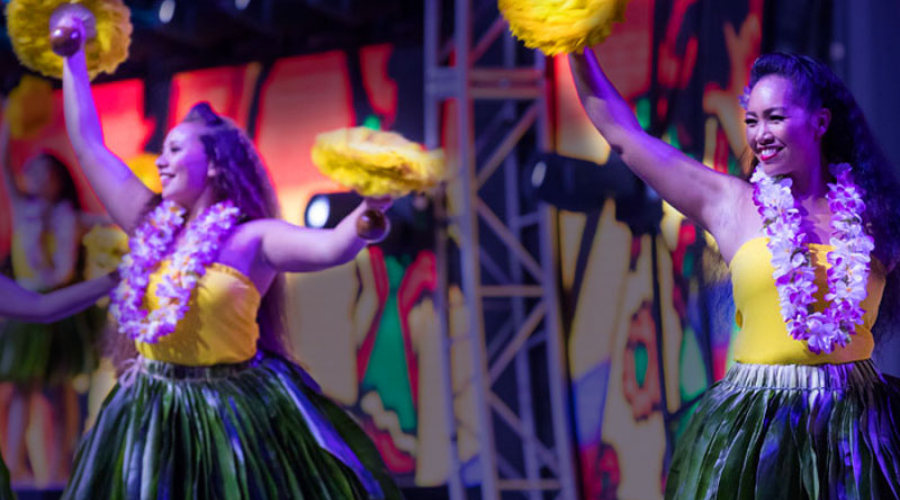 Hula Dancers at Pearl Harbor Aviation Museum Event.
Hula Dancers at Pearl Harbor Aviation Museum Event.
Most modern Hawaii luaus include traditional Hawaiian foods, hula dancers, fire dancers, mai tais, lei and kukui nut greetings, and people from all over the world gathering together to celebrate! Traditional Hawaiian luau food includes huli huli chicken, kalua pork, macaroni salad, white rice, poi, luau, shrimp, sweet breads, haupia, and so much more!
Liberty Luau at Pearl Harbor
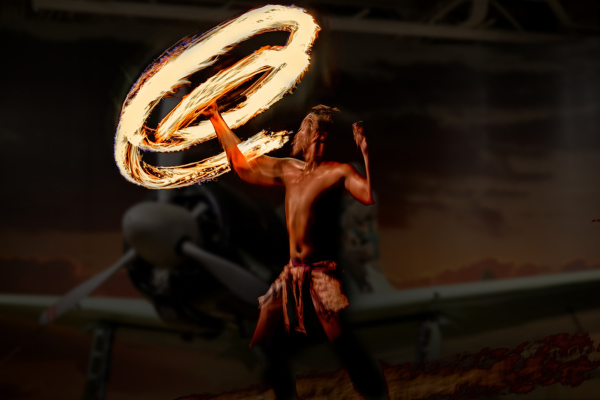 World-class entertainment at Liberty Luau.
World-class entertainment at Liberty Luau. 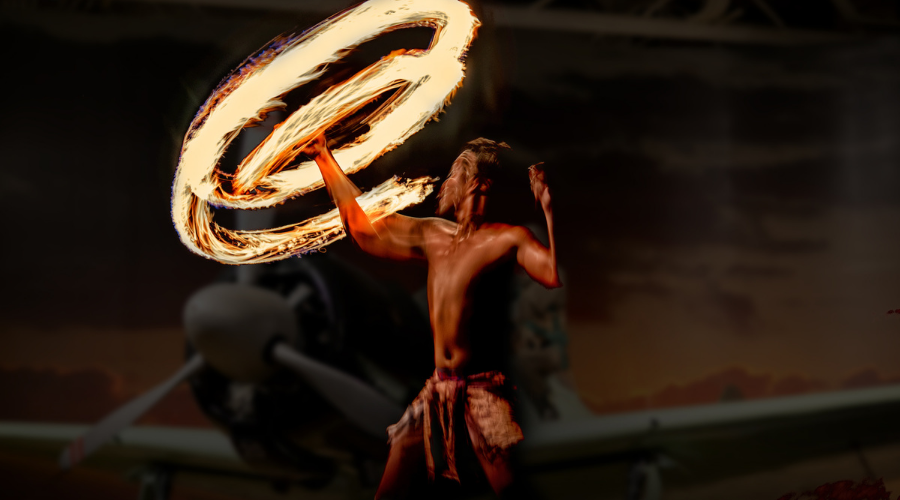 World-class entertainment at Liberty Luau.
World-class entertainment at Liberty Luau.
Experience the magic of a Hawaiian luau and the history of 1940s Pearl Harbor in Oahu’s must-experience new luau. Weaving together the best of Waikiki with classic Hawaiiana and Pearl Harbor history, Liberty Luau features the island’s best entertainers in a dinner show that will transport you back in time to Hawaii of old.

